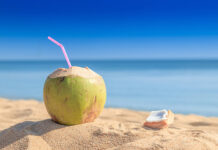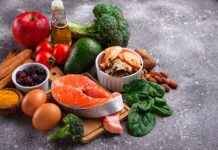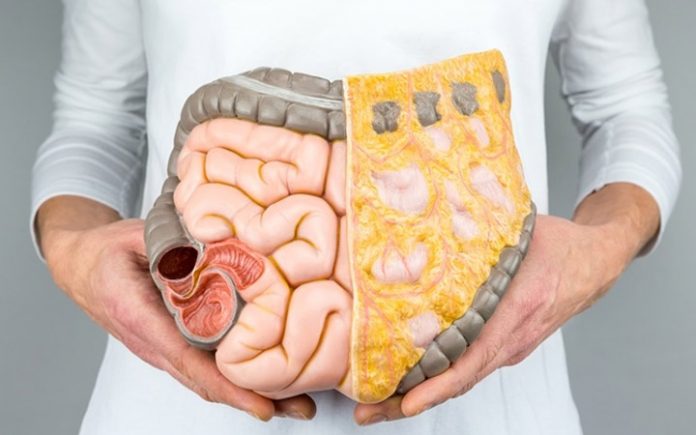Last Updated on January 29, 2021
If you want to live a happy and healthy life, you should take care of every aspect of your health, and that includes digestive health, of course. The colon also referred to as the large intestine, is one of the most important parts of your digestive system.
There are claims that colon health can be improved by a natural colon cleanse, but there is insufficient scientific evidence to back up this theory.
However, there are some benefits you can reap from this process, like the prevention of colon cancer, as well as the prevention of other colon associated health risks. Here is a list of methods on how to promote colon health through a natural colon cleanse at home.
Keep in mind that this isn’t something you should do regularly, but sporadically.
1. Water Flush
Staying hydrated is mandatory for anyone who wants to live in good health, but water is also a key element when fighting digestive problems and promoting digestive regulation. To cleanse your colon with the water flush method, you should drink between 6 to 8 glasses of warm water daily.
You don’t want to drink plain water, you can always choose to drink herbal tea instead, or intercalate. It is also important that you invest in a diet rich in foods with high water content, which means you should consume a lot of fruits and vegetables.
2. Saltwater Flush
If your digestive system seems to be irregular, or if you are experiencing constipation, a saltwater flush might be the solution for you. You should add two teaspoons of salt to a glass filled with warm water, ideally sea salt, or salt from the Himalayas.
Drink this mixture before making your first-morning meal, and do it quickly – you will likely feel the effect right away. Because you might need to use the bathroom more than once, we recommend you’d try this natural colon cleanse during a weekend day or any other day when you have no plans to leave the house.
3. Invest In A High-Fiber Diet
Because fiber is a micronutrient, people often forget to include it in their diet. But as far as digestive health goes, fiber is essential as part of a healthy colon diet.
Among the foods with high fiber content, you can find nuts, grains, fruits, veggies, and even seeds. They will help regulate your bowels and prevent constipation. Plus, they will give you a boost in much needed intestinal bacteria that serves as a prebiotic.
4. Smoothies And Juices
Juices have gained popularity in the colon cleansing department because you can make them using fruits and vegetables. Both juice and smoothies are rich in water, and they are packed with all the nutrients that are beneficial for your digestion.
Plus, a lot of the fruits and vegetables you can use to make delicious juices or smoothies have high levels of vitamin C, which has digestive benefits as well.
The most popular juices for this process are lemon juice, juice made from veggies, and apple juice as well. But some people say that smoothies are better for your health since you don’t remove the pulp – therefore, a smoothie contains more fiber.
5. Resistant Starches
You can find resistant starches in foods like rice, green bananas, grains, and potatoes, for example. Much like fiber, resistant starches contribute to the maintenance of a healthy colon, and they do so by providing you a boost in gut microflora.
There is just one problem – the foods that contain resistant starches are carbohydrates. You can always opt for the food that will give you less blood sugar spikes, like waxy potatoes or rice.
6. Probiotic Supplements
Probiotics can do wonders for your colon health, but they can also improve your general health.
You have a lot of foods that are rich in probiotics, like pickles, yogurt, kimchi, as well as many other fermented foods, but you can always choose to take probiotic supplements instead. The role of probiotics is to boost your gut with good bacteria, promoting regularity, and reducing inflammation.
7. Herbal Teas
Teas are a great way of staying hydrated, a natural way of dealing with colon related issues. Herbs like aloe-Vera, slippery elm, marshmallow root, or even psyllium, as well as other laxative herbal teas, can be your best natural medicine when you are experiencing constipation.
However, it is always good to seek a professional opinion before self-medicating with these herbs since overconsumption can pose a health risk.
Precautions you should take:
These natural at-home cleanses usually safe, but if you do it frequently, you can be putting yourself at risk. People with high blood pressure should not perform saltwater flushes, as high sodium intake is not recommended.
If you are doing regular colon cleanses, you can experience side effects such as cramping, nausea, vomiting, dizziness, and even dehydration. If you experience any of these symptoms, get in touch with your doctor and stop the cleanse right away.
There is a risk of heart failure, as well as digestive damage associated with the continuation of the cleanse. Make responsible choices and always consult with a health professional before making any significant changes to your diet and/or lifestyle.
If you choose to drink herbal teas as a cleansing method, be sure that the herbs do not interfere with any of the medications you are taking at the moment.

























